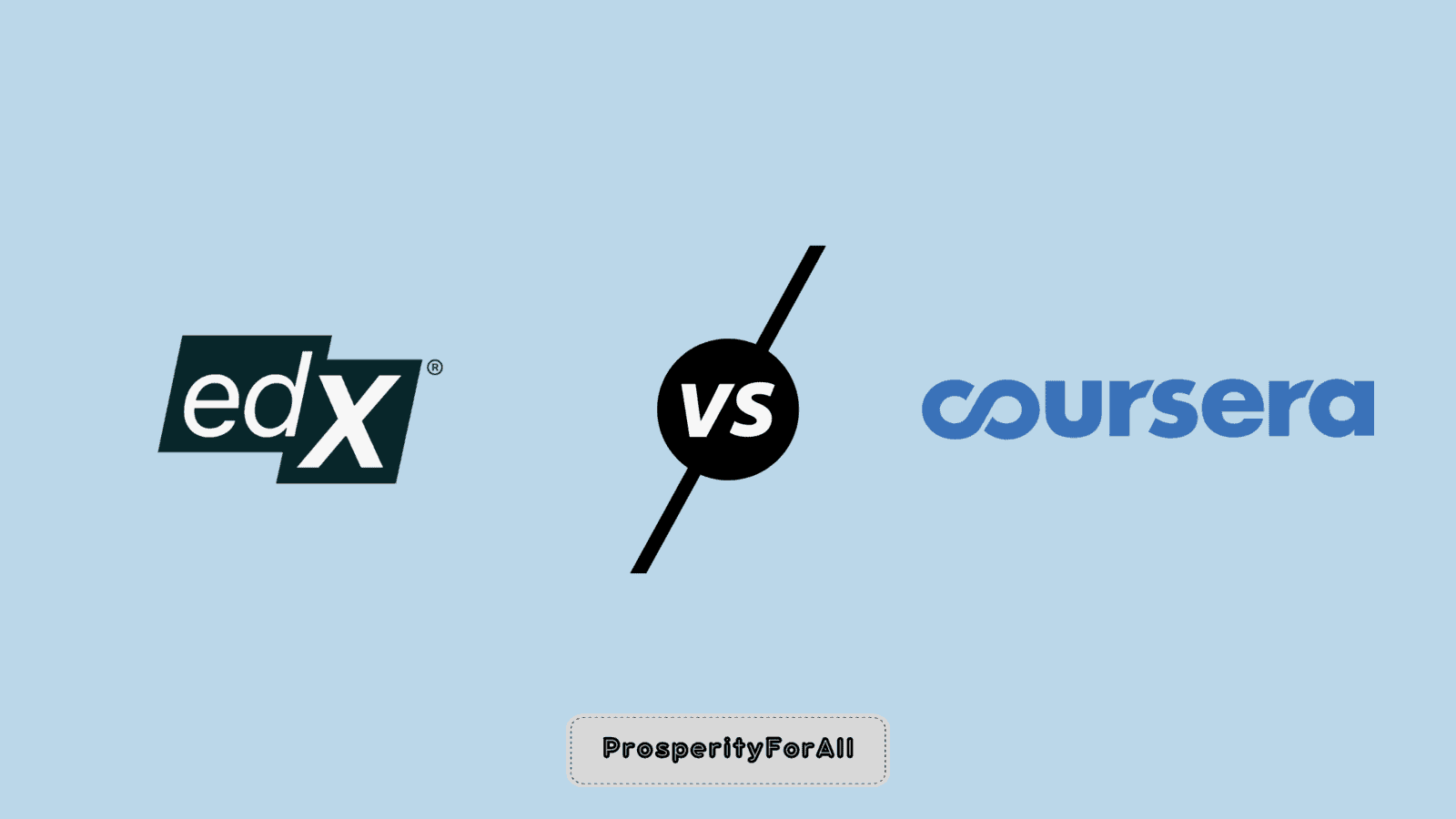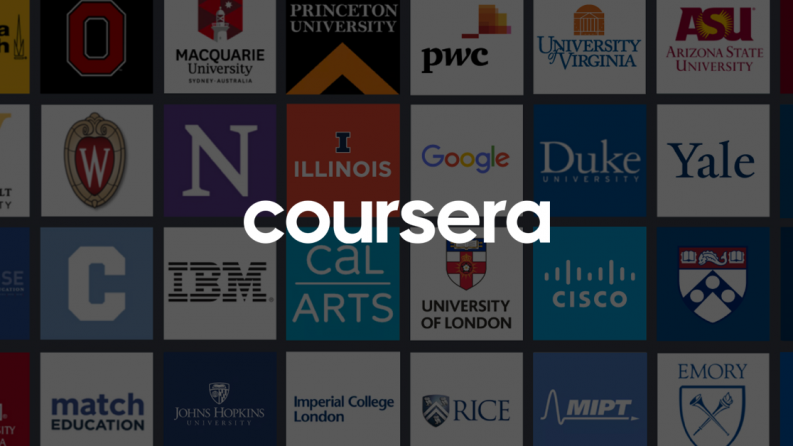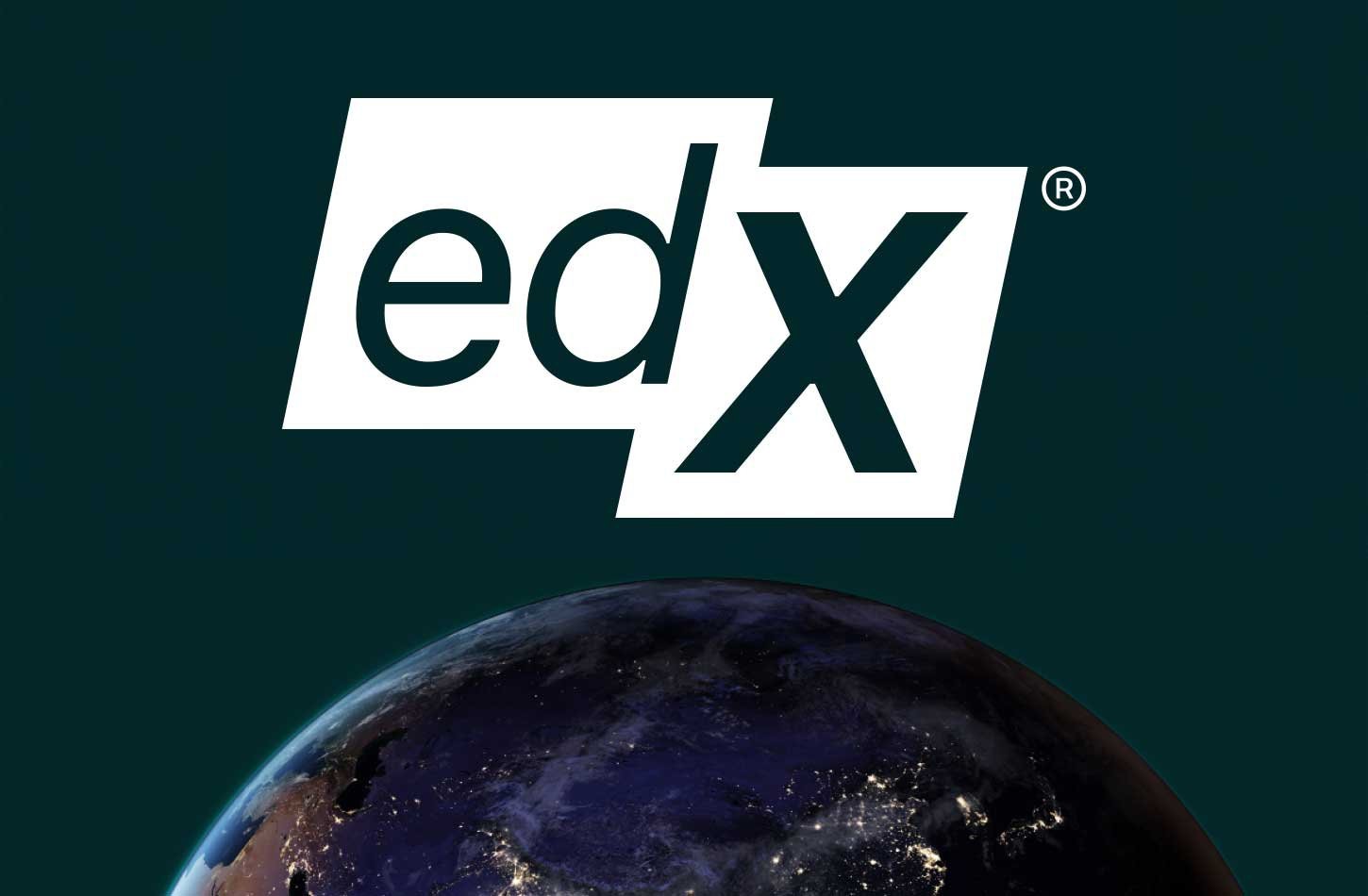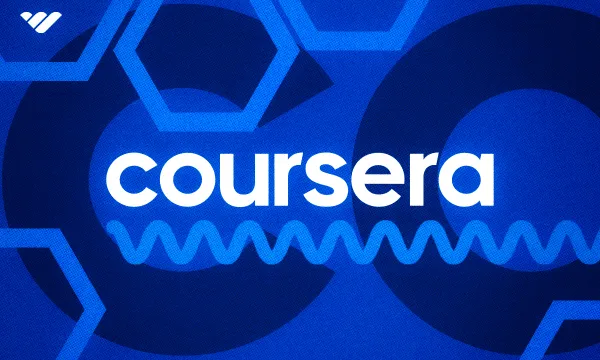Coursera vs edX
A detailed comparison to help you choose the right online learning platform.

A detailed comparison to help you choose the right online learning platform.

Coursera is a globally recognized online learning platform that partners with top universities and companies like Stanford, Google, and IBM. It offers courses, professional certificates, and degree programs in a variety of subjects including business, tech, and humanities.

edX is a leading online learning platform founded by Harvard and MIT. It offers university-level courses, professional programs, and full online degrees across disciplines like science, computer science, engineering, and more — all designed to deliver academic rigor and quality.



| Features | Coursera | edX |
|---|---|---|
| Platform Focus | Career-oriented professional courses & degrees | Academic courses from top universities |
| Institutions | Google, IBM, Meta, Stanford, Yale | Harvard, MIT, Berkeley, Oxford |
| Certification Types | Professional Certificates, Specializations, Degrees | XSeries, Professional Certificates, MicroMasters, Degrees |
| Course Delivery | Video lectures, quizzes, peer-graded assignments | Video content, discussion forums, assessments |
| Learning Path | Structured learning paths via Specializations and guided projects | Modular, course-by-course learning structure |
| Subscription Options | Coursera Plus (unlimited access) | Pay-per-course or program |
| Audit (Free Access) | Limited free access (no certificates or assignments) | Full course audit available (no certificate) |
| Degree Programs | Bachelor’s and Master’s degrees from top universities | Bachelor’s and Master’s degrees from global institutions |
| Career Services | Resume review, career tips, job insights | Limited, mostly focused on academic progression |
| Mobile App | Available with offline learning | Available with most features |
| Languages | Multi-language support with subtitles | Primarily English, fewer multi-language options |
| Community Interaction | Peer forums, mentor guidance, project feedback | Discussion boards, instructor Q&A sections |
| Course Duration | Short (1–4 weeks) to long-term (6+ months) | Self-paced or instructor-paced; varies by program |
| Best For | Skill development, career growth, certifications | Academic enrichment, university-level learning |
| Common Features | Description |
|---|---|
| Global Reach | Both platforms operate worldwide and provide access to courses for learners across different countries and regions. |
| University Partnerships | Each collaborates with top universities like Harvard, MIT, Stanford, and more to offer high-quality content. |
| Free Courses Available | Learners can access course materials for free by auditing courses, though certificates require payment. |
| Paid Certifications | Both platforms offer verifiable certificates for a fee upon successful course or program completion. |
| Self-Paced Learning | Many courses are self-paced, allowing learners to progress at their own speed and convenience. |
| Professional Certificates | Both offer industry-recognized professional certificate programs designed to enhance career skills. |
| Degree Programs | Learners can pursue full online degrees like Bachelor’s or Master’s from top institutions on both platforms. |
| Video Lectures | Courses are delivered through high-quality video lectures, often accompanied by subtitles and transcripts. |
| Assignments and Quizzes | Both platforms offer quizzes, assignments, and projects to evaluate understanding and support learning. |
| Mobile App Support | Available mobile apps for iOS and Android let learners access content anytime and anywhere. |
| Discussion Forums | Community forums allow students to interact, ask questions, and collaborate with peers globally. |
| Multi-language Support | Courses often include subtitles and navigation in various languages for global accessibility. |
| Wide Range of Subjects | Both platforms offer courses in technology, business, health, humanities, arts, science, and more. |
| Institutional Branding | Certificates and degrees are issued under the branding of the respective partner institutions. |
| Flexible Deadlines | Many courses offer flexible deadlines to accommodate varying learner schedules and commitments. |
| Accessibility Features | Both support learners with accessibility tools like closed captioning and screen reader compatibility. |
| Career Support Resources | Each platform offers resume-building tools, job listings, and guidance for career advancement. |
| Progress Tracking | Learners can monitor their course progress, completion status, and grades within their dashboards. |
| Secure Transactions | Both platforms offer secure payment gateways and data protection for user transactions and information. |
| Industry-Aligned Skills | Courses are designed in collaboration with academic and industry experts to meet current market needs. |
After comparing both platforms, my personal preference is clearly Coursera. It delivers a more dynamic, career-focused, and flexible learning experience that truly aligns with today’s evolving educational needs. Here’s why I choose Coursera over other platforms: